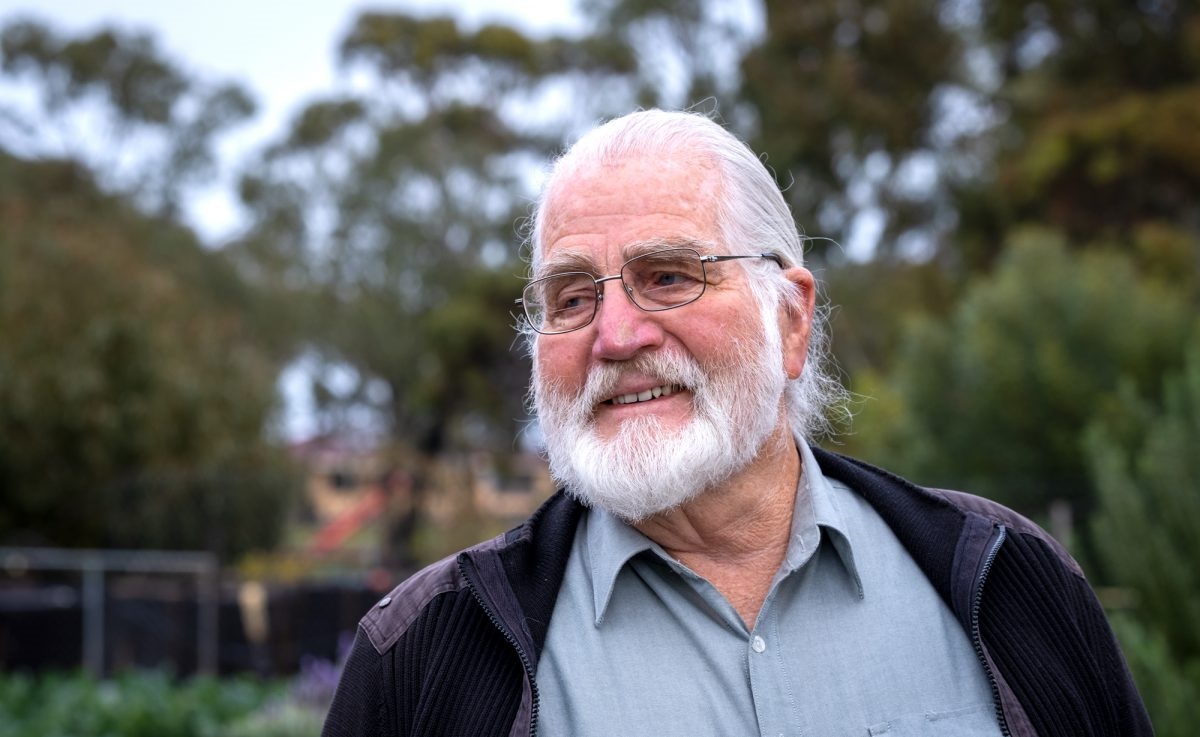Sharing time with other people and learning new skills relating to confidence and optimism has given George Turley a new outlook.
When George’s wife of six decades died a few years ago, he found himself alone for the first time in his life. Together, the Turleys raised a family that now includes six grandchildren and six great-grandchildren.
“I’d been retired for 20 years. Our children had their own families. When my wife died, life felt like it stopped for me too. My family was very supportive through the early stages of my grief, but some of my coupled friends didn’t know what to do with me,” George says.
By chance, George saw an advertisement for the Wellbeing and Resilience Program, a quad-council initiative by the Cities of Onkaparinga, Holdfast Bay, Marion and Mitcham. It is aimed at people aged 60 years and older, and is offered free of charge. For a period of six weeks, participants attend one session per week for a couple of hours in a community centre that is central to a large number of attendees. Community transport is available for people who are without access to a personal vehicle.
The program walks through a series of skill-building activities based on positive psychology. The key themes include building positive relationships, improving confidence and optimism, and developing problem-solving skills and strategies. Examples of each theme are discussed collaboratively among the group, as well as applications to daily life.
George says his involvement with the program has stabilised his life. It has given him the confidence to continue making a contribution to the community.
“I’m meeting new people, who often have an entirely different view of life. It’s interesting to talk with them and share stories,” George says.
Developing a growth mindset and cultivating a sense of gratitude have been George’s favourite learnings from the program.
“Until I participated in the course, I hadn’t considered what I was thankful for in my life. I have so much to be grateful for, yet, gratitude hadn’t come into my awareness,” he says.
George has recently become one of seven community champions who are trained by the South Australian Health and Medical Research Institute to co-present the program alongside council staff. Council seeks feedback from the champions about how the program content or presentation can be improved.
“There is no right or wrong answer to anything we talk about. We create a safe and confidential environment where people can share what they think or what they believe,” George says.
With his new-found confidence, George has been a key driver in creating a men’s wellbeing group. From a study with participants of the Wellbeing and Resilience Program, it was evident that the level of wellbeing among the male participants was low.
“I found when I was talking to the men, they were often very lonely, even if they wouldn’t say so. I know what that’s about. Men sometimes have a dilemma between being lonely and wanting to be left alone. It’s a catch 22 situation,” George says.
About 10 men attended the first men’s wellbeing group held late last year. George says the feedback from the group was positive.
“There’s a lot of surface stuff with men, and men will often use humour to hide difficult feelings. But the fact that the men turned up every week and talked about themselves shows they were encouraged by each other. It’s easier for men to open up among other men,” George says.

Despite his daytime activities and new knowledge, George still felt unsettled when returning home to an empty house and having to eat his evening meal alone in front of the television¾a challenge shared by many older people. After joining Onkaparinga’s Social Connections Program in mid–2018, George co-established the Night Owls’ group, where people gather to have dinner together on Tuesday nights at various locations.
“I enjoy the opportunity to have a meal out with other people who, for whatever reason, want to do the same thing,” George says. “I’m glad I overcame my resistance to trying new things and making social connections. After my wife died, I had a desire to stay in my grief because it felt safer. The council’s wellbeing programs have brought me out of my cocoon.”
Community transport is also offered for the Night Owls’ event to help people who are otherwise housebound. Friendships have formed within the group, and several members are enjoying other activities together during the week.
There is an interconnection among the wellbeing and social programs on offer, says the council’s Project Officer for Sustaining Independence and Wellbeing Maria Shialis.
“We are aiming to increase the state of wellbeing among our community. We hope that the learnings from the workshop can be translated to other programs the participants are involved in and their day-to-day living, creating a trickle effect throughout our community,” she says.
Visit onkaparingacity.com or phone the Active Ageing team on 8384 0161.
To join Social Connections as a community member or to learn more, phone 8301 7232.